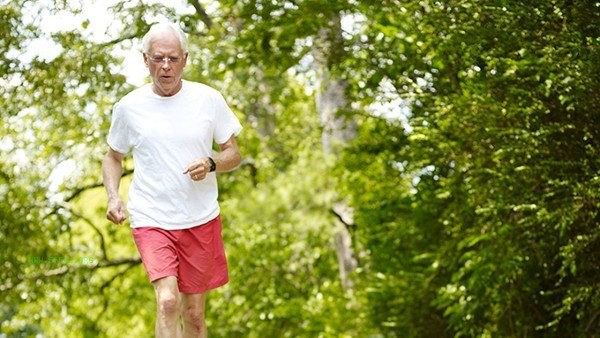In the scorching summer, Lao Liu and Lao Zhang made an appointment to go hiking and seek a hint of coolness in the mountains and forests.
"Oh, it's really hot today, I'm sweating profusely! ”Lao Liu crawled and complained, his clothes almost turned into sweatshirts.
Seeing Lao Zhang, only a few drops of sweat were slightly oozing from his forehead: "Lao Liu, are you sweating too much? Are you getting old and your body can't keep up?"
Lao Liu immediately retorted, "You don't understand that. Sweating a little in the summer is actually a good thing, it's for the body to dissipate heat and detoxify! As someone like you who sweats less, you really need to pay attention. Maybe your body is reminding you to pay more attention to your health!"
After hearing this, Lao Zhang half believed and half doubted: who is healthier, sweating more or sweating less?

1. Choice of Summer Exercise Time: Morning exercise is not necessarily better the earlier.
Many people believe that the air in the morning is the freshest, and getting up early to exercise can maintain a good mental state. However, this approach may actually be detrimental to health. In the morning, before the sun comes out, plants have not yet started photosynthesis, and the concentration of carbon dioxide in the air is high with less oxygen. If physical exercise is carried out at this time, the proportion of carbon dioxide in the inhaled air is high, which can easily lead to blood concentration and, in severe cases, may cause ischemic stroke. Therefore, it is recommended that everyone wait for 30 minutes after the sun comes out before starting morning exercise.
2. Control of Exercise Volume and Time: Moderate Exercise is Appropriate
In summer, human metabolism accelerates, and some people increase their exercise volume and time in order to quickly achieve detoxification and fitness effects. This' suicide style 'exercise method is not only useless, but may also lead to problems such as physical exhaustion and heatstroke. The appropriate duration for a single exercise is 30-40 minutes. If you have sufficient physical strength, you can add several rounds of exercise after rest to achieve the effect of sweating and fitness.
3. How to scientifically hydrate after exercise
Sweating during exercise consumes a large amount of water, so hydration is necessary, but the following points should be noted:
1. Drink water slowly, do not gulp it down.
Drinking a large amount of water at once can quickly dilute the blood and increase the burden on the heart, especially after exercise. Drinking heavily is not only harmful to the heart, but may also trigger reflex sweating, causing the body to overdraw again. Suggest drinking water slowly and in small sips.
2. Avoid cold drinks
Drinking cold drinks after exercise not only fails to effectively hydrate, but may also cause gastrointestinal discomfort and even diarrhea. It is recommended to drink warm water at 10-30 degrees Celsius.
3. Supplementing Mineral Drinks
Sweating during exercise can result in the loss of a large amount of minerals such as potassium and calcium, leading to fatigue. It is recommended to drink diluted salt water or mineral drinks while replenishing water to supplement these minerals, maintain normal metabolism, and relieve fatigue.
4. Health Benefits of Scientific Sweating
Although sweating does not detoxify, moderate sweating in summer has many benefits for physical health:
1. Preventing colds
Moderate sweating can maintain the vitality of the body temperature regulation mechanism and prevent colds.
2. Clean the skin
Sweating can take away the oil and dirt from the epidermis, reduce pore blockage, and maintain skin health.
3. Protecting cardiovascular health
Moderate sweating can allow the body to regulate naturally, which is beneficial for cardiovascular health.
4. Promote metabolism
Sweating can promote metabolism and help eliminate some metabolic waste.
Fifth, Warning of Abnormal Sweating
Abnormal sweating may indicate the onset of disease:
1. Head sweating
may be a manifestation of insufficient yang energy.
2. Hand sweating
may be associated with endocrine disorders such as hyperthyroidism.
3. Chest sweat
may be a precursor to heart disease.
4. Half body sweat
may be a signal of diabetes. In summary, scientific sweating in summer is not only beneficial for physical health, but also helps you maintain vitality during hot summers. I hope that while enjoying exercise, everyone can also scientifically protect their bodies.




Comments (0)
Leave a Comment
No comments yet
Be the first to share your thoughts!